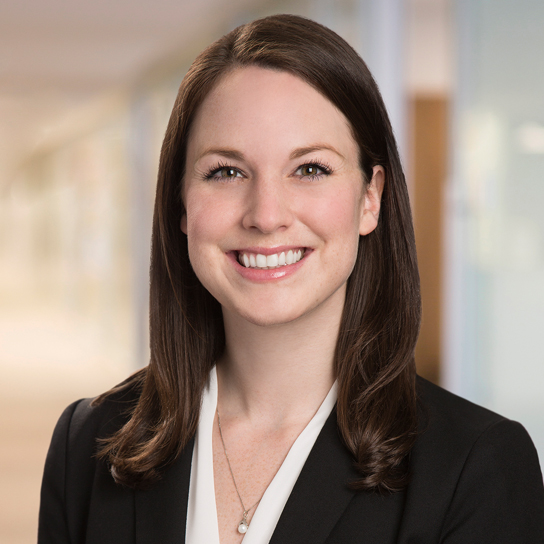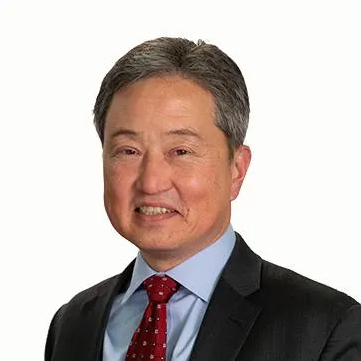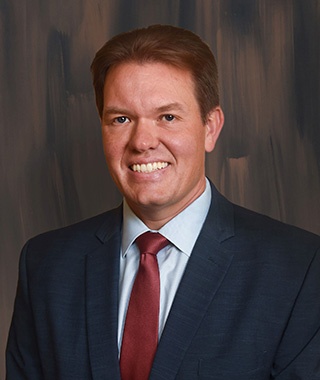Overview
IDFA’s Regulatory RoundUP virtual conference returns this summer with a jam-packed lineup of current and former federal regulatory officials and regulatory experts from IDFA and other organizations serving the food and beverage and nutrition sectors. This is a once-per-year, can’t-miss event, for dairy and other food professionals that:
- inform the development and implementation of federal food safety, labeling, and nutrition policies;
- drive regulatory compliance with federal and state standards;
- perform quality assurance and quality control functions in facilities;
- and provide legal expertise and advice.
Join us from 12:00 – 3:30 p.m. Eastern on July 22-23 for exclusive sessions with key regulatory experts. Please check back for registration information.
Agenda
| July 22, 2024 | Event | Speaker | Location |
|---|---|---|---|
| 12:00pm - 1:00pm |
Session
|
||
| 1:00pm - 1:45pm |
What Might the Future of GRAS Look Like from a Regulatory Perspective?
|
||
|
Join Tony Pavel, Partner, Keller Heckman, as he shares his views on how GRAS could be modernized to provide the transparency consumers demand and deserve with comprehensive regulatory oversight that assures the safety of these important food ingredients. Would mandatory listing of all GRAS substances and self-GRAS determinations, systematic post market review, and putting stricter guardrails around GRAS panel composition and conflicts of interest disclosure do the job? |
|||
| 1:45pm - 2:00pm |
Break
|
||
| 2:00pm - 2:45pm |
Food Fights in the Courtroom
|
||
|
As the legislative and regulatory landscapes for food have ramped up under the new administration, the class action litigation drumbeat also goes on. In the past year we have continued to see a significant number of suits filed over claims such as “naturally flavored” and “no preservatives”; and alleged contaminants in foods. Other hot topic issues include so-called “ultra-processed foods” and health halo claims, nutrient content claims, alleged greenwashing, and substantiation for health-related claims. In this session, Veronica Colas will share her expertise advising food companies on the current state of food labeling litigation, lessons your company can learn from these lawsuits, and how we might forecast the future of this area of litigation. |
|||
| 2:45pm - 3:45pm |
What Advocacy Levers and Priorities are Front and Center for Food Safety Related Consumer Advocacy Groups?
|
||
|
Join consumer advocates with a focus on food safety from Consumer Reports, STOP Foodborne Illness, and the Consumer Federation of America to discuss strategy changes and priorities influenced by the opportunities the Make America Healthy Again platform presents. |
|||
| July 23, 2025 | Event | Speaker | Location |
| 12:00pm - 12:45pm |
Session
|
||
| 12:45pm - 1:45pm |
Session
|
||
| 1:45pm - 2:00pm |
Break
|
||
| 2:00pm - 2:45pm |
Food Traceability Rule Roundup
|
||
|
Improving the speed and accuracy of product recalls is vital for safeguarding public health, but it’s not always easy connecting the dots. The Partnership for Food Traceability is an independent, sector-neutral nonprofit developing a shared, overarching vision for food traceability with partners across the supply chain. This session will discuss interoperability challenges, technological opportunities, and learnings from traceability pilot trials as industry tries to develop implementable solutions for enhanced traceability in time for rule compliance. |
|||
| 2:45pm - 3:30pm |
Session
|
||
What Might the Future of GRAS Look Like from a Regulatory Perspective?
Join Tony Pavel, Partner, Keller Heckman, as he shares his views on how GRAS could be modernized to provide the transparency consumers demand and deserve with comprehensive regulatory oversight that assures the safety of these important food ingredients. Would mandatory listing of all GRAS substances and self-GRAS determinations, systematic post market review, and putting stricter guardrails around GRAS panel composition and conflicts of interest disclosure do the job?
Tony Pavel
Food Fights in the Courtroom
As the legislative and regulatory landscapes for food have ramped up under the new administration, the class action litigation drumbeat also goes on. In the past year we have continued to see a significant number of suits filed over claims such as “naturally flavored” and “no preservatives”; and alleged contaminants in foods. Other hot topic issues include so-called “ultra-processed foods” and health halo claims, nutrient content claims, alleged greenwashing, and substantiation for health-related claims. In this session, Veronica Colas will share her expertise advising food companies on the current state of food labeling litigation, lessons your company can learn from these lawsuits, and how we might forecast the future of this area of litigation.

Veronica Colas
Veronica Colas counsels clients on the regulations and policy issues affecting food companies from farm to table.
Using her keen awareness of today's class action litigation environment, Veronica helps develop new products, label claims, and advertising materials. She has a deep understanding of both current and forthcoming food labeling and production requirements ranging from nutrition and menu labeling, to the regulatory issues surrounding bioengineered foods and organic food production. As companies seek to communicate about the health, nutrition, or environmental benefits of their products, Veronica helps them navigate the regulatory landscape.
Veronica provides clear advice and practical solutions for compliance with labeling, advertising, and safety regulations from the Food and Drug Administration (FDA), U.S. Department of Agriculture, Consumer Product Safety Commission, and states. Veronica is a go-to on state food packaging laws, such as the California "recyclable" requirements and extended producer responsibility. She has significant experience in helping clients navigate regulatory enforcement challenges, such as recalls, Warning Letters, import detentions, and investigations by the Federal Trade Commission. Veronica works closely with trade associations and food companies to craft comments and develop strategies in response to public policy issues such as agency rulemaking and nutrition policy. She represents all segments of the food industry, including manufacturers, retailers, restaurants, and food service companies.
She is a regular speaker and contributor to industry publications, including providing training sessions to corporate clients on Food Law 101, food labeling and marketing, and claim substantiation.
What Advocacy Levers and Priorities are Front and Center for Food Safety Related Consumer Advocacy Groups?
Join consumer advocates with a focus on food safety from Consumer Reports, STOP Foodborne Illness, and the Consumer Federation of America to discuss strategy changes and priorities influenced by the opportunities the Make America Healthy Again platform presents.

Brian Ronholm
Brian Ronholm is the Director of Food Policy for Consumer Reports. He leads CR's advocacy efforts to advance a safe and healthy food system. Brian brings deep legislative and regulatory experience in food policy to CR. He also writes and speaks extensively on food policy issues, with a particular emphasis on emerging technologies, food safety modernization, and pending regulatory policies facing the food industry.
During his tenure as Deputy Under Secretary, Food Safety, at the U.S. Department of Agriculture (USDA), Brian provided leadership, management, and oversight of the Food Safety and Inspection Service (FSIS), the public health agency with more than 9,000 employees responsible for ensuring the safety of meat, poultry, catfish, and processed egg products.
In addition to overseeing FSIS, he chaired the U.S. Codex Policy Steering Committee, an interagency partnership that engages stakeholders in the advancement of science-based international food safety standards to facilitate fair trade, and served as Chair of the National Advisory Committee on Microbiological Criteria for Foods (NACMCF), which provides impartial scientific advice to federal agencies for use in developing integrated food safety systems.
He also served as Agriculture Appropriations Associate in the office of U.S. Rep. Rosa DeLauro of Connecticut, where he managed and coordinated activities involving key legislative initiatives for food and nutrition issues.
Prior to joining CR, Brian most recently served as Senior Director of Regulatory Affairs at Wilson Sonsini Goodrich and Rosati, and he served in the same senior position at Arent Fox LLP.
He serves as a part-time lecturer at Northeastern University in the College of Professional Studies, and he also sits on the board for the SBLA, a non-profit charitable organization for professionals working in sports whose goal is to provide children with the resources necessary to engage in unique sports experiences.

Sandra Eskin
Eskin most recently served as the USDA Deputy Under Secretary for Food Safety from March 2021- January 2025. In this role, Eskin worked with the Under Secretary to lead the Office of Food Safety at the U.S. Department of Agriculture, overseeing the Food Safety and Inspection Service (FSIS), which has regulatory oversight for ensuring that meat, poultry and egg products are safe, wholesome and accurately labeled. At USDA, she helped develop and implement the Salmonella in Poultry initiative and championed a research project to update the Safe Handling Instructions label.
Prior to joining USDA, Eskin was the Director of the Safe Food Project at The Pew Charitable Trusts in from November 2009 – March 2021. While at Pew, she managed a broad multi-stakeholder coalition that was instrumental in the enactment of the FDA Food Safety Modernization Act (FSMA). She also served as the Deputy Director of the Produce Safety Project (PSP), a Pew-funded initiative at Georgetown University from 2008-2009, where she worked with the Association of Food and Drug Officials to draft the organization’s Model Produce Safety Code. When she was at the PSP, she was a senior scholar with the O’Neill Institute for National and Global Health Law at Georgetown University.
Eskin spent nearly 20 years as a public-policy consultant to numerous consumer advocacy and public-interest organizations, providing strategic and policy advice on a broad range of consumer-protection issues, in particular food and drug safety, labeling, and advertising. She has served as a member of multiple federal advisory committees related to consumer information on prescription drugs, meat and poultry safety, and foodborne illness surveillance. During her career, she has written numerous reports and articles on food-safety topics.
Eskin has been engaged with STOP at multiple times during her career: as primary author of its 10th anniversary report; as a partner in the efforts to enact FSMA; and as a member of its Board of Directors.
Eskin received her J.D. from UC Law-San Francisco (formerly UC Hastings College of the Law) and her B.A. from Brown University.

Thomas Gremillion
Thomas Gremillion is the Director of Food Policy at the Consumer Federation of America. He oversees the research, analysis, advocacy and media outreach for the group’s food policy activities, and monitors food safety activities at USDA, FDA and in Congress, where he advocates for strong food safety protections for consumers. He also coordinates the Safe Food Coalition, a group of consumer, trade union, and foodborne illness victim organizations dedicated to reducing foodborne illness by improving government food inspection programs.
Prior to joining CFA in 2015, Gremillion practiced environmental law at Georgetown University Law Center’s Institute for Public Representation, where he represented community groups and advocacy organizations in litigation against polluters and government regulators. He also served as an associate attorney at the Southern Environmental Law Center in Chapel Hill, NC, where he specialized in transportation and land use issues.
A graduate of Harvard Law School, Gremillion is a member of the D.C. and North Carolina bars. He graduated magna cum laude from the University of South Carolina with a B.S. in mathematics, and served as a Rotary Ambassadorial Scholar in Quito, Ecuador, where he received an M.A. in International Relations from La Universidad Andina Simón Bolívar.
Food Traceability Rule Roundup
Improving the speed and accuracy of product recalls is vital for safeguarding public health, but it’s not always easy connecting the dots. The Partnership for Food Traceability is an independent, sector-neutral nonprofit developing a shared, overarching vision for food traceability with partners across the supply chain. This session will discuss interoperability challenges, technological opportunities, and learnings from traceability pilot trials as industry tries to develop implementable solutions for enhanced traceability in time for rule compliance.

